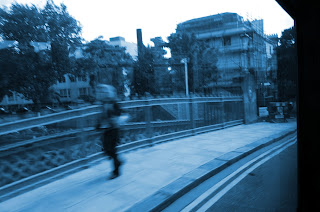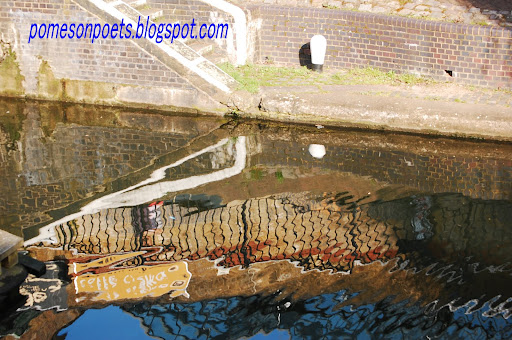The following quotation from an old Peter Porter essay seems peculiarly relevant to my recent endeavour.
“Too many translators (and I include myself) are ill-acquainted with the tongues they translate from and know very little about the prosody and traditions of other languages. You can achieve useful results from this ignorance but that is not what translation is supposed to be about.” (quoted by Jon Silkin in the Introduction to his Poetry of the Committed Individual – A Stand Anthology of Poetry – Penguin 1973)
Poems Read in the Dual Language “Songs of Love and Grief“ selected and translated by Walter W.Arndt, North Western University Press Illinois 1995.
Walter.W.Arndt is a renowned scholar, poet and translator.
My versions are my own versions – translated from the ground up by me with the help of my Collins dictionary, yet guided and no doubt influenced by Arndt’s excellent and enjoyable translations. I have also been helped by the biographical essay in “Heinrich Heine: Poems and Ballads” translated by Emma Lazarus – Hartsdale House New York 1947. Without Arndt, I would not of course have had access to a selection of poems drawn from all the periods of Heine’s poetry. This selection highlights the many levels and complexities of Heine’s work. He comes over as very modern, not so much the achingly romantic lyricist the Liede composers latched onto. The poems in Arndt’s selection amount to a volume that has affinities with Baudelaire and the Symbolists.
Why on Earth with my rusty O level German have I taken the step of re-translating these poems? My only motive for producing translations of my own is the enjoyment it produces, the struggle and search for getting it right feels worth while – I imagine as an aspiring piano player struggles to get to grips with a Schubert sonata and gets a buzz when a few bars come out. I hope my “playing” of Heine does not upset the neighbours!
I also hope the results may be useful to someone else as well as me.
***
Wir fuhren allein im dunkeln (Sorry, can’t manage the umlauts in Word)
In the dimly lit coach
We travelled alone through the night;
We pillowed our heads and laughed
On each other’s hearts.
Then, as the morning light appeared,
My sweet, how silent we were:
Between us a new passenger,
The blind one, Love.
Wir haben viel fur einander gefuhlt
We felt a lot for each other
and got on perfectly well;
we often played husbands and wives,
only we didn’t bite each other’s heads off.
We hugged and cuddled a lot –
we kissed each other as well,
and then, on a childlike whim,
we started to play hide and seek,
and we hid from each other
so well and elaborately, we hid
that never on this sorrowful Earth
have we found each other again.
Sie haben mich gequalet
They egged me on
And cut me up:
One with love’s hot brew,
the other with hate’s cold cup.
They put poison in my drink
And brought me poisoned bread;
The one with warmest love, the other
With hate left me for dead;
Yet she who hurt me the most
And strafed my flesh with grit –
She never hated me at all
And loved me not one bit.
Gaben mir Rat and gute Leben
They lectured me and gave me good advice;
They showered me with faint praise,
And said that if I would only wait
They’d put in a good word for me.
Well – for all their good words
I could have wasted away from hunger,
If there had not appeared a more decent man
Who took it upon himself to fight my corner.
A much more decent man, he stopped me from going hungry;
Him, I will never, ever forget!
What a shame I can’t kiss the guy,
For I myself am this decent man.
***
Wie Schandlich du gehandelt
I’ve never told anyone
How shabbily you behaved;
I went far out to sea
And told the fish instead.
So, I have preserved your reputation,
At least on dry land,
While all over the ocean
I’ve branded you with shame.
Es ragt ins Meer der Runenstein
On a rock covered with runic signs,
I sit dreaming above the sea;
The wind whistles and the sea gull cries,
The wandering waves and the foam.
I used to love the travelling men
And all those beautiful girls:
I wonder what happened to them.
The wind whistles,
The foam and the wandering waves.
Meinen schonsten Liebesantrag
You earnestly claim
To know nothing about
My beautiful love note
That bore your name.
Tell me then, sweet dame,
Are you turning me down?
Ah! Oh dear - She’s crying…
Me, I hardly ever
Resort to prayer;
Then, please listen
To this request:
Dear Lord come to this
Girl-for-hire’s breast,
Shedder of sweet tears.
Make her better!
Wenn Ich an deinen Hause
When I happened to be passing
Your house this morning,
I was so glad to see you
At the window with your
Almost black eyes, sweet little girl,
And you looked so searchingly at me
As if to question, “Well, who are you?
And what’s your problem, strange, ill man?”
“I am a German poet,” I answer
“Well known throughout the German lands;
Where people drop the best names
There also my name appears,
And my problem, little girl,
Is shared by many in Germany;
Where the worst sufferings are listed
There also my name appears.
(It would be well worth {any one’s} while checking out Tony Harrison’s excellent film poem about what happened to Heine’s statue, after Heine died in the 1850s, to get another perspective on this theme! I have read the script and would love to see the film.)
Philister in Sonntagsrocklein
Worthy townsfolk in Sunday dress
Go walking through woods and meadows;
They shout and leap about
Like bucks to greet the Spring.
They see with misty eyes
How Romantic everything is;
The flowers, the sparrow’s song,
They suck it all in.
I, however, pull down the blinds
Of my room and make it black;
My ghostly personal friends
Pay me a daytime visit.
Stepping out from death’s kingdom
My old girlfriend appears;
She sits beside me and cries
And melts my heart to wax.
Ich hatte einst ein schones Vaterland
I had a fatherland:
There, the beautiful oak tree thrusts so high,
The bluebells nod peacefully.
It was a dream.
I was kissed in German,
German I spoke –
You can scarcely believe
How good that sounded:
The words, “Ich liebe dich.”
It was a dream.
Die Lorelei: Ich weiss nicht, was sol es bedeuten
There’s a story that is timeless;
I don’t know what it means;
I can’t get it out of my mind
It fills me with such sadness.
As dusk falls the air is cool
And peaceful over the Rhein,
Flowing between far mountains
Whose peaks still catch the sun.
A beautiful young woman
Mysteriously appears;
Her jewellery reflects the light;
She’s combing her golden hair.
Even her comb is golden,
And she sings enchantingly,
Such a sweet melodious chant
It’s wonderful to hear.
The sailor in his little vessel
Is overcome with grief;
He’s not looking at the jagged reef,
Instead he looks up to the heavens.
I think the waves will get involved
With this sailor and his boat:
A finale that, with her singing,
The Lorelei has brought about.
Diese Damen, sie verstehan
These women know just how to
Applaud my poetic genius;
They put on a special lunch
For me – and it of course.
Ah! The soup was delectable
And the wine livened me up;
The chicken was fit for the gods,
And the hare was definitely jugged.
I think there was some talk of po-
etry – at last, quite satiated,
I thanked them for having treated
And bestowed such honours on me.
Anno 1829
So that I can bleed
Conveniently to death
Give me a wide, white field.
Let me not suffocate
In commerce’s closed-in Colloseum.
They wine and dine so well here;
They cram their mouths on prosperity,
And their generosity is as wide
As the alms-box flap!
They deal in spices
From around the world,
Yet behind all the fragrant essences,
You can’t help noticing their souls
Smell of rotten shrimps.
Oh! That I were witnessing a great
Profanity: full of ritzy wickedness –
Not this insipid virtue
And morality of the counting house.
They walk with cigars
Stuck out of their mouths,
And hands thrust deep
In their trouser pockets.
Their digestion is so good -
Who? Oh, who can digest them?
You clouds up there, take me with you.
It doesn’t matter into which far distance –
To Lapland or to Africa
Or it could be Pomorania,
As long as it’s away, away.
Oh, take me with you… They didn’t hear;
The clouds up there are far too wise;
They climb higher when they cross this city,
And anxiously speed up their flight.
Es kommt zu spat was du mir lachelst
Whatever smiles
you were smiling
they came too late;
whatever sighs
you sighed too late –
long-since deceased
the tender feelings
in cruelty rejected!
The love you returned
returned too late –
it fell onto my old heart
like rays of sunshine
on a sarcophagus.
Only, I would
like to know
what happens to
our souls when we are dead.
Where does
the extinguished fire go?
And the air
that fanned it –
where to that?
Die Flaschen sind leer, das Fruhstuck war gut
The bottles are empty, the bacon sizzling,
The girls’ cheeks hot with rosy pinkness;
Hems going up, chemises falling,
They’ve started, it seems, to get undressed.
How white the bare shoulders; the breasts how pretty!
My heart stops, arrested in mid-beat;
Now they’re flinging themselves onto the bed
And parcelling themselves up with the sheets.
They’ve even managed to draw the curtain
And begin snoring in unison.
Like a lonely tower th’embarrassed poet,
In his room, surveys his slept-in bed!
Neuer Fruhling
Through the window
of this morning’s first
awakening, floats
the lovely carillon
sweet song
sweet little song
of spring –
ring out, little song
go far out
into the distance
ring far away -
you’ll come across
the house
where flowers are
just beginning
to appear
and when
you have found
a rose
tell it “Hello” from me.
Translated April 2008



